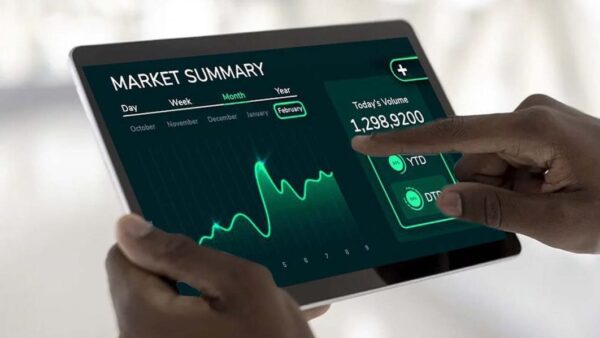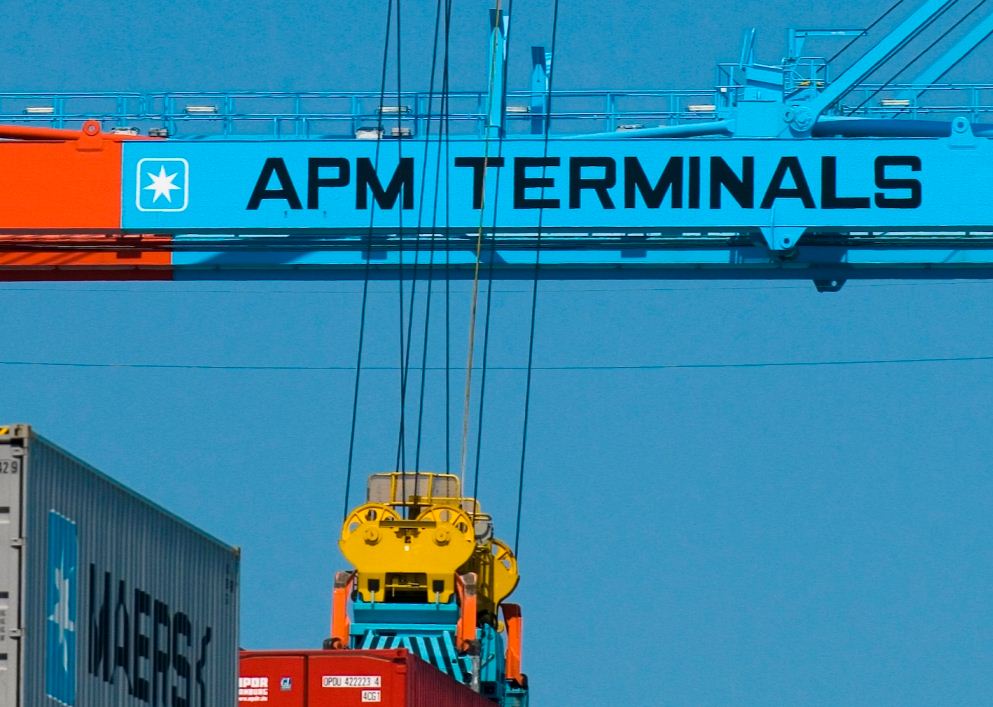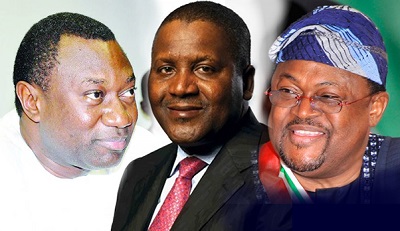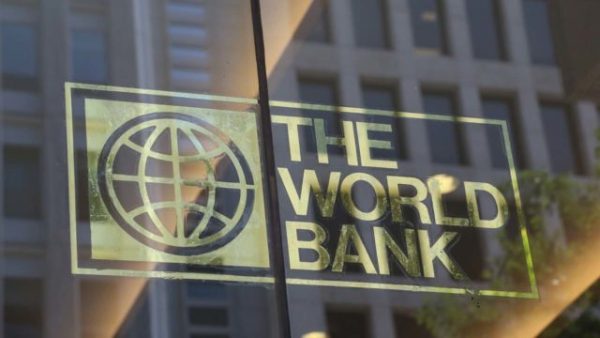Threat to Budget Implementation
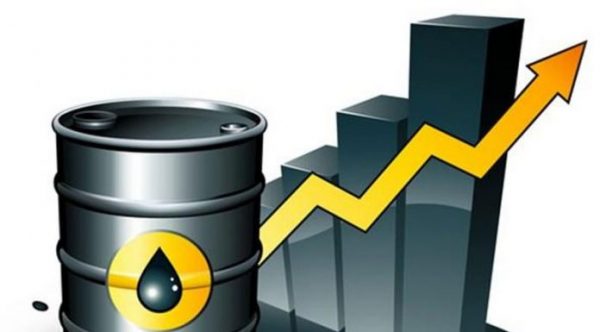 President Muhammadu Buhari recently presented an appropriation bill of N8.83trillion to the National Assembly for consideration and ratification in pursuit of his administration’s ‘continuity agenda’ in 2019. Media reports that given falling oil prices at the international market, the federal government may find it difficult to fund the budget
President Muhammadu Buhari recently presented an appropriation bill of N8.83trillion to the National Assembly for consideration and ratification in pursuit of his administration’s ‘continuity agenda’ in 2019. Media reports that given falling oil prices at the international market, the federal government may find it difficult to fund the budget
Oil Prices
If there is no reversal in oil price at least in the short to medium term, the plan of President Buhari to use the proposed budget of continuity for 2019 to further consolidate his past achievements in economic growth might just be a mirage.
This is because the price of oil has already fallen by more than 30 per cent so far this quarter to its lowest since the third quarter of 2017 even as global stock markets also declined after they came under pressure from concern about a United States government shutdown and a worsening world economy.
As at Thursday, December 27, 2018, crude oil price in the international market stood at $52.42 per barrel, according to figures made available by the Central Bank of Nigeria (CBN). This is about $8 per barrel lower than $60 per barrel on which Nigeria benchmarked the funding of its 2019 budget.
Commenting on the perceived threat, a Lagos-based economist and analyst, Dr. Boniface Chizea, told media that, “Dealing with the benchmark price of oil is one of the difficult issues to handle with budget preparation because of its vexatious volatility. So a situation whereby the budget benchmark is above the prevailing market price is ill-advised and certainly problematic. We are on record to observe that it is eminently easier to manage surplus and therefore that is the preferred thrusts as we put together the budget details. But we should not overly worry and be concerned about this for now. All that would happen is that the deficit included in the budget will be exceeded if revenue projections are not realised and there will then be recourse to additional borrowing.”
However, economic pundits have identified the escalating trade dispute between China and the United States as further threat to crude demand and global growth.
And also because the US Senate has been unable to break an impasse over President Donald Trump’s demand for more funds for a wall on the border with Mexico, and a senior official said the shutdown could continue until January 3, 2019, investors are flocking to perceived safe-haven assets such as gold and government debt, at the expense of crude oil and stocks, Brent crude futures were down 58 cents at $53.24 per barrel.
Likewise, the US crude futures fell 90 cents to trade at $44.69. Brent fell 11 per cent last week and hit its lowest since September 2017, while US futures slid to their lowest since July 2017, bringing the decline in the two contracts to 35 per cent so far this quarter.
The federal government also predicated the budget on the 2.3 million barrels per day even though the current output is still around two million barrels per day.
Optimism
While the reality remains that oil price continues to drop in recent times, Buhari said his government is optimistic that the trend will not continue for a long time.
“Notwithstanding the recent softening in international oil prices, the considered view of most reputable analysts is that the downward trend in oil prices in recent months is not necessarily reflective of the outlook for 2019”, he disclosed while presenting the document to the joint National Assembly recently.
The president said he had issued directives to the nation’s oil corporation otherwise known as Nigeria National Petroleum Corporation (NNPC) to up its games to meet the projected production target of 2.3 million barrels per day listed in the document to be able to meet revenue target.
“With regard to oil production, I have directed the NPPC to take all possible measures to achieve the targeted oil production of 2.3 million barrels per day”.
Meanwhile, it still remains unclear what the NNPC would do differently next year to achieve the mandatory production target given that output in 2018 stands on the average of 1.9million per barrel per day.
Realistically, however, Buhari said “as a responsible administration, we will continue to monitor the situation and will respond to any changes in the international oil price outlook for 2019”.
2018 Review
The 2018 budget was based on a benchmark oil price of $51/barrel with oil production of 2.3 million barrels per day and an exchange rate of N305 to the dollar. Based on these, the federal government’s aggregate revenue of N7.17trillion was projected to contribute to the 2018 budget of N9.12trillion. The projected deficit of N1.95trillion (or 1.73 percent of GDP) was to be financed mainly by borrowing.
While the budget was premised on 2.3million barrels per day In 2018, average oil production up to end of the third quarter was 1.95 million barrels per day. However, what could not be achieved through volume in 2018 was robustly compensated for in terms of price as average market price of Bonny Light crude oil was higher (an average of $74 per barrel as at October) than the benchmark price of $51/barrel.
As at the end of the third quarter, federal government’s actual aggregate revenue was N2.84trillion, which is 40 per cent higher than 2017 revenue. The overall revenue performance is only 53 per cent of the target in the 2018 budget largely because some one-off items are yet to be actualised. But the president said revenue items in the 2018 budget will be rolled over to 2019.
Despite the delay in the passage of the 2018 budget on 20th June 2018, it has so far recorded a 67 per cent performance given that N4.59trillion has been spent as at 30th September, 2018 against the prorated expenditure target of N6.84 trillion. The sum of N820.57billion had been released for capital projects as at 14th December, 2018.
2019 Budget
According to the president, the 2019 budget proposal is intended to further place the economy on the path of inclusive, diversified and sustainable growth in order to continue to lift significant numbers of the citizens out of poverty. He explained that the underlying drivers of the 2019 revenue projections had been adjusted to reflect current realities. “On the expenditure side, allocations to ministries, departments and agencies of government were guided by the three objectives of the ERGP, which are: Restoring and Sustaining Growth; Investing in our People and Building a Globally Competitive Economy,” he said.
The 2019 budget proposal is based on five key assumptions which are as follows: price benchmark of $60 per barrel; oil production estimate of 2.3 million barrels per day, including condensates; exchange rate of N305/$; Real GDP growth of 3.01 percent; and inflation rate of 9.98 per cent.
Revenue
Total revenue is projected at N6.97trillion which is three percent lower than the 2018 estimate of N7.17trilion, consisting of oil revenue projected at N3.73trillion while non-oil revenue is estimated at N1.39trillion.
Analysis of revenue projection shows that 53.5 per cent of funding is expected from oil, which is presently highly volatile in the world market, while 46.5 per cent of revenue will come from the non-oil sector. A deficit of N1.86 trillion is planned to be funded through borrowing.
Further breakdown indicates that the estimate for non-oil revenue consists of N799.52billion from companies income tax (CIT), N229.34billion from value added tax (VAT) and Customs duties of N302.55billion. Expectation from independent revenues was reduced to N624.58billion while other revenues expected in 2019 include various recoveries of N203.38billion, N710billion as proceeds from the restructuring of government’s equity in joint ventures and other sundry incomes of N104.11billion.
But there is an expression of confidence in some quarters that the funding of the 2019 budget would be achieved despite uncertainties in oil prices. Chizea said growing performance in non-oil revenue generation was a sign of great things to come. His words: “There is a development no one has celebrated so far to the best of my knowledge. If the Federal Inland Revenue Service (FIRS) has raised about N5.3 trillion this year and Customs, N1.0trillion, we are surely getting there. If we sustain this level of performance, it means we would be able to fund our recurrent expenditure from fiscal sources and like other well managed economies of the world, use income from the extractive sector for capital expenditure.
Expenditure
A total expenditure of N8.83trillion is estimated for 2019 which includes grants and donor funds of N209.92billion. The provision is less than the N9.12trillion expenditure estimate for 2018 but higher than the N8.6trillion originally proposed by the executive branch to the National Assembly for 2018.
The proposed N8.83trillion of 2019 aggregate expenditure comprises of a N4.04 trillion recurrent expenditure of which a substantial part will be spent on payment of salaries and overheads in ministries providing critical public services.
The Ministry of Interior takes a chunk of N569.07billion ahead of education and health with N462.24billion and N315.62billion respectively. Defence also got a priority funding of N435.62billion. The four key ministries account for 19.3 per cent of recurrent spending.
“The allocation to these ministries represents significant increases over votes in previous budgets, underscoring our commitment to increase investment in national security and human capital development”, Buhari explained.
Capital Expenditure
A sum of N2.28trillion was allocated for capital spending which is inclusive of capital in statutory transfers. But with the inclusion of N275.88billion representing capital for the larger Government Owned Enterprises (GOEs) and N556.02billion for Multi-lateral/Bi-lateral project-tied loans, the aggregate capital budget will rise to N3.12trillion. This represents 30 percent of the total FGN proposed expenditure for 2019.
“For comprehensiveness and transparency, the expenditure plans of the larger Government Owned Enterprises (GOEs) as well as Multi-lateral and Bi-lateral project-tied loans have been integrated into the 2019 -to- 2021 Medium Term Fiscal Framework”, Buhari said.
Debt Service
The sum of N2.14 trillion has been provided for debt service. Of this amount, 80 percent is to service domestic debt which accounts for about 70 percent of the total debt. Government argued that though national debt is within sustainable limits, it needs to increase “our domestic resource mobilisation to bring down our debt-revenue ratio over the medium term.’
Diversification Boost
To further support Small and Medium Scale Enterprises, which are the focus of the Nigeria’s industrialisation drive, the sum of N15billion was set aside for the recapitalisation of the Bank for Agriculture (BOA) and the Bank of Industry (BOI). In addition, the sum of N10billion is provided as a grant to the Bank of Industry for the purpose of subsidising the interest rates charged on loans to Small and Medium-Scale Enterprises. This according to government is intended to make it possible for entrepreneurs to access single digit interest rate loans from the Bank of Industry.
In its determination to move away from mono-economy, government says Special Economic Zones will be created in all the geo-political zones. “We intend to exploit the comparative advantages of the six geo-political zones and our 36 states by establishing six industrial parks and 109 special production and processing centres across all 109 senatorial zones including shared facilities. These clusters will have power, water, and broadband facilities with embedded regulatory services. The clusters will generate vibrant economic activity, stimulate small businesses and create jobs across the length and breadth of Nigeria”.
“A key objective going forward is to further encourage and enable ‘prosperous small businesses’. Our micro, small and medium enterprises will accordingly benefit from improved access to funding, supporting infrastructure and off-take arrangements by Government and larger enterprises. They will leverage the Government Enterprise and Empowerment Programme, and the Anchor Borrowers Programme”, Buhari added.



